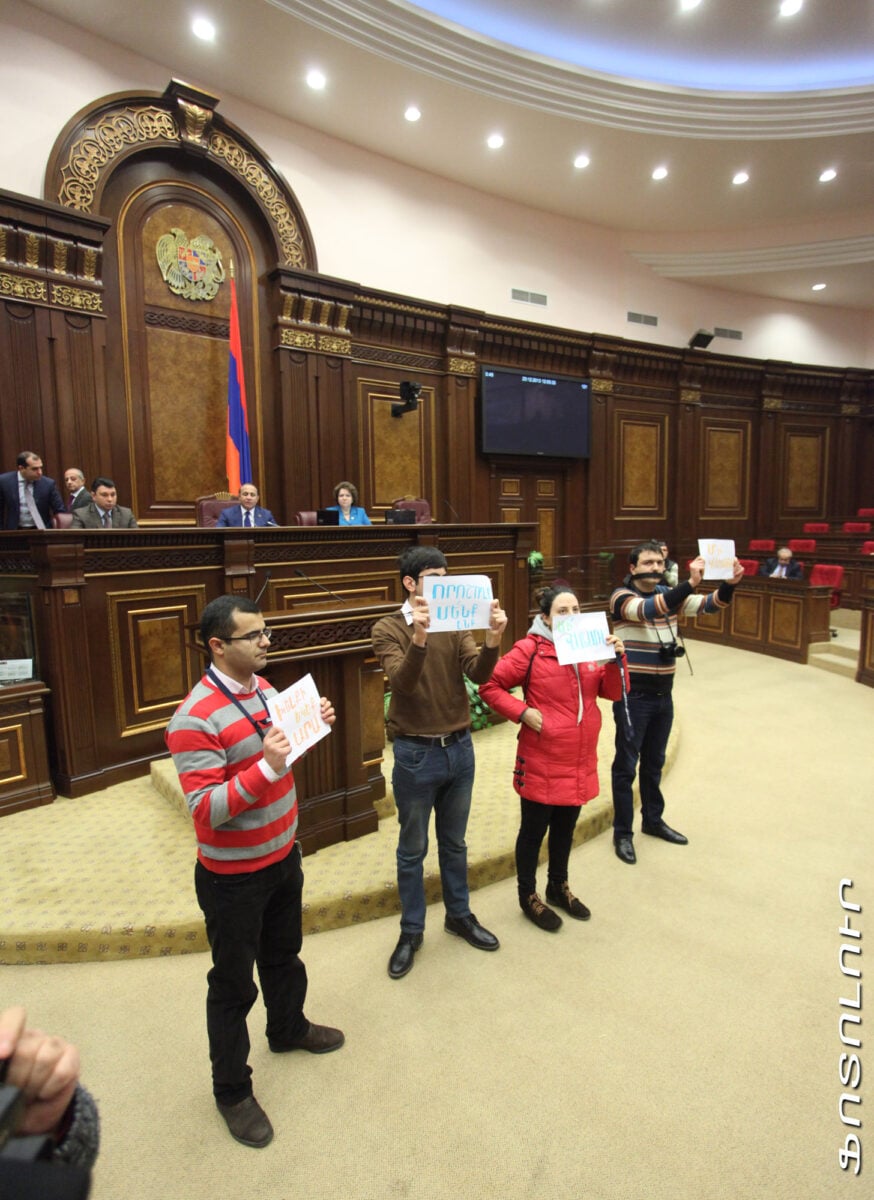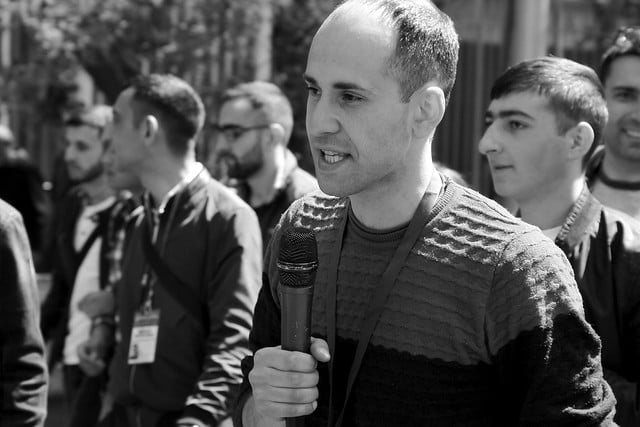The most memorable civic action carried out by journalists in the history of Armenian journalism in the last decade was in 2013.
Journalists Hakob Karapetyan, Grisha Balasanyan, Anna Yeghiazaryan, currently MP Sargis Khandanyan expressed their protest with posters in the sitting hall of the National Assembly during the voting on the “gas” agreement signed between Armenia and Russia. They did not want the agreement to be ratified.
The topic of civic actions of journalists became relevant a few days ago after the action of editor Marina Ovsyannikova during the “Vremya” news program broadcast live on the Russian First Channel. By chanting anti-war slogans, she showed her attitude toward the ongoing Russian-Ukrainian war.
Hakob Karapetyan, Journalist, Editor-in-Chief of the Fact-Finding Platform (FIP)

Hakob, observing his own action from a distance of years, says that his attitude towards such actions is ambiguous.
According to him, a journalist is a person who has civic views and attitudes toward current developments, but they are constrained by their professional responsibilities to express them. And those responsibilities force them to be neutral, to work to provide comprehensive and impartial information to the audience.
“The field of participation of journalists in different actions is narrow because even if you are not going to cover them, you are just present at them, you have the “burden” of being a journalist,” said Hakob.
According to the journalist, Ovsyannikova’s political action was peaceful, but from the point of view of journalistic ethics, it might have been justified if she had written a resignation letter before taking that step. “On the other hand, she is a citizen worried about the war, who made her message influential and spread the content to the wider masses.”
Remembering their action, he says, it made a lot of noise, it was covered, it is still remembered today, but he cannot consider that action unequivocally justified. Although on that day they, together with the journalists participating in the action, decided not to cover the NA events.
Gevorg Tosunyan, journalist, CivilNet

Gevorg does not consider civil actions by journalists an effective way to solve problems.
He sometimes makes political posts on his social network page, which may be emotional, but he tries not to have an obvious political position, not to follow this or that political force.
He thinks that actions cannot be effective because the journalists can fight against the rights and injustices much better with their daily work and the content they have created.
“Of course, it is also important to understand the conditions under which the journalist carries out a political action. For example, the latest case related to Ovsyannikova’s action is somewhat understandable, because she could not achieve results with her work, or by choosing an expert who can speak boldly. That’s how she found the way to express her thoughts,” he said.
According to him, a journalist working in the state media in Russia is deprived of freedom, of the opportunity to assess the realities in any way, and we in Armenia can use our social network pages, choose an expert or build a report so that our attitude is felt.
Gevorg says that during the change of government in 2018, when Serzh Sargsyan resigned and people were shouting with joy, he took off his journalistic badge and congratulated people on the street for that occasion.
“When I put my badge aside, I just felt like a citizen. It was also difficult during the coverage of the 44-day war because it was difficult to remain a journalist and maintain neutrality. We were on the side of the war and it turned out that we were on the side of the Armenian propaganda because it was difficult to look at the information from another angle,” he said.
In 2021, when laws restricting the activity of journalists in the National Assembly were adopted and cases were registered, the journalists carried out a written action, in which Gevorg did not participate.
After personally having his activities restricted in the National Assembly by law enforcement, he turned to the journalistic community, the ombudsman’s office, in a conversation with other media outlets and raised the issue on his social network page. “I chose other ways and I think my concerns will be able to reach a more effective and wider audience than the actions of my colleagues.”
Gayane Asryan







